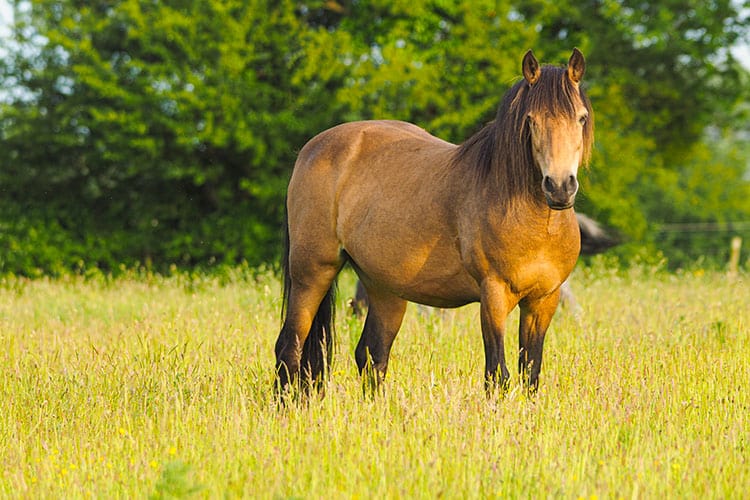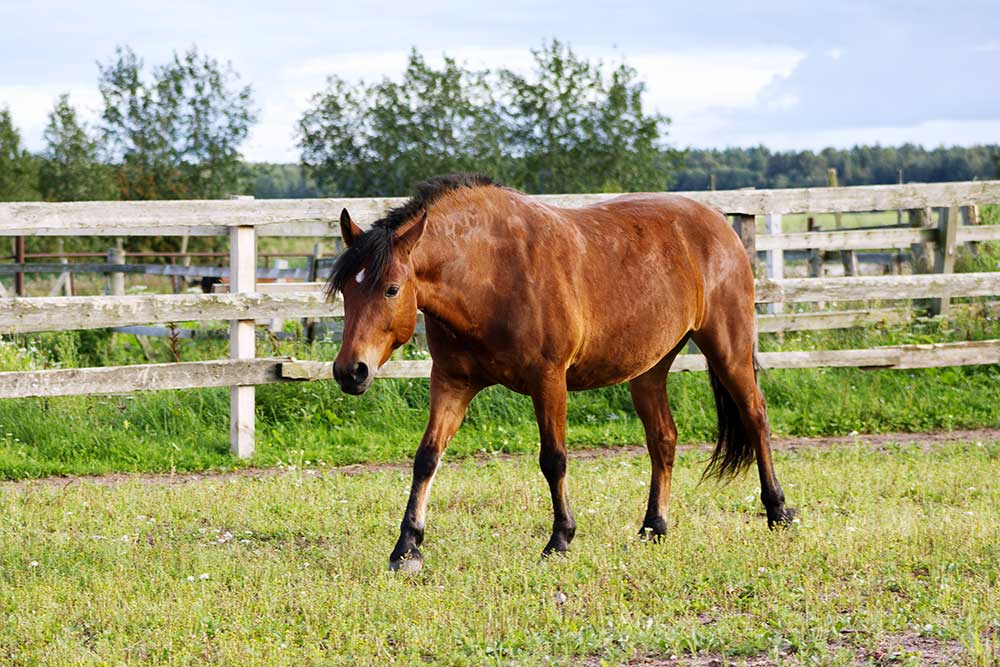
Endocrine Disease and Performance Horses—More Than Laminitis
Learn the latest on equine endocrine disease—causes, diagnosis, dynamic testing, and whole-horse treatment strategies—beyond just laminitis. Sponsored by Kentucky Performance Products.

Learn the latest on equine endocrine disease—causes, diagnosis, dynamic testing, and whole-horse treatment strategies—beyond just laminitis. Sponsored by Kentucky Performance Products.

The latest research-based recommendations on managing equine metabolic syndrome and insulin dysregulation. Sponsored by Equithrive.

Horses with EMS are often overweight or obese and also at an increased risk of developing laminitis. Implement these 5 strategies to manage your EMS horse more effectively.

Find out which horses and ponies have a higher genetic risk for EMS and how to manage them.

Overweight horses and some breeds are predisposed to metabolic problems. Here’s how to feed horses with ID and calculate if your horse’s meal has a safe level of NSCs.

Read about the do’s and don’ts of feeding horses that have 4 common health conditions, including gastric ulcers, metabolic disorders, and more.

Here are some tips for promoting nonworking horses’ optimal health (and preventing potential problems) with nutrition.

Learn how to calculate the amount of forage your horse or pony needs to achieve a healthy weight and what types of hay might be best for weight loss.

Here’s how you and your veterinarian can work together to reduce your horse’s risk of developing joint disease in his early years.

Keep your broodmare at a healthy weight to help ensure her and her foal’s safety during gestation and foaling.

Here’s how to determine if your horse is under- or overweight and, if so, by how much.

Test your knowledge about the tricky world of PPID, EMS, ID, and more.

Can horses lose weight too fast? Does exercise or dietary restriction work better for equine weight loss? Two experts answer these questions and more.

Rapid weight loss can lead to hyperlipemia, a serious and sometimes fatal condition.

Find out what health conditions overweight horses might be more likely to develop and how you can help your horse safely lose weight to improve his performance.

Discover how nutritionists took three horses from fat to fabulous.
Stay on top of the most recent Horse Health news with
"*" indicates required fields